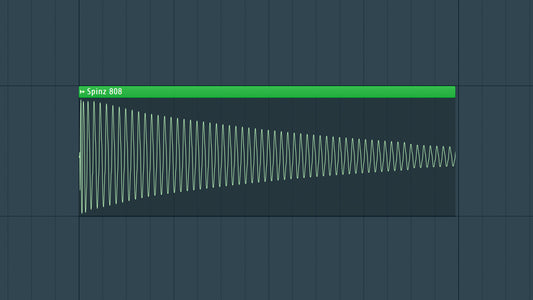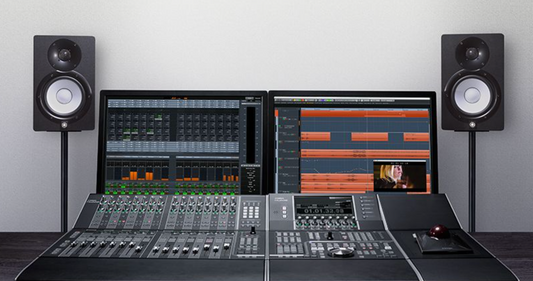Introduction:
A long time ago, I realized one of the most important techniques to making my music sound more professional... Achieving a polished and professional sound requires a keen understanding of various techniques, and gain staging is key to making your mix sound polished. Gain staging is the strategic management of audio levels throughout the production process, ensuring a balanced and clean signal flow. In this blog post, we'll delve into the importance of gain staging, its role in achieving sonic clarity, and practical tips for implementing it in your music production workflow.

Understanding Gain Staging:
- What is Gain Staging? Gain staging involves managing the levels of audio signals at each stage of the production process to optimize signal-to-noise ratio, prevent distortion, and maintain a clean and dynamic sound.
- The Signal Path: Gain staging begins with the recording phase and continues through mixing and mastering. Each element in the signal path, from individual tracks to buses and the master output, contributes to the overall sonic quality.
- Digital vs. Analog Gain Staging: While traditional analog systems have physical limitations that require careful gain adjustment, digital systems offer more headroom but still benefit from thoughtful gain staging to maximize audio quality.
Importance of Gain Staging:
- Preventing Distortion: One of the primary goals of gain staging is to prevent distortion. Distortion can occur when audio levels exceed the maximum capacity of a system or plugin, leading to unwanted clipping and degradation of the sound.
- Optimizing Dynamic Range: Proper gain staging ensures that your audio maintains a healthy dynamic range. This means preserving the difference between the softest and loudest parts of your music, allowing for greater expressiveness and clarity.
- Avoiding Noise: In analog systems, high levels of gain can introduce noise. Proper gain staging helps keep the signal-to-noise ratio in check, minimizing unwanted background noise and ensuring a cleaner sound.
- Balancing Levels: Gain staging helps achieve a balanced mix, allowing each element to sit in its intended sonic space. Balanced levels contribute to a more focused and cohesive sound in the final mix.
Practical Tips for Effective Gain Staging:
- Start at the Source: Begin with proper gain setting during recording. Capture clean and well-leveled recordings to avoid corrective gain adjustments later in the process.
- Use Gain Plugins Sparingly: While gain plugins can be useful, rely on them sparingly. It's often more effective to adjust levels directly within the mix to maintain a natural and transparent sound
- Monitor Levels: Regularly monitor and adjust levels throughout the production process. Pay attention to peak levels and use visual indicators to identify potential issues.
- Group Similar Elements: Grouping similar instruments or tracks and adjusting their collective gain can help maintain balance and control overall volume without affecting the individual elements.
- Prioritize Quality over Loudness: Resist the temptation to push levels for the sake of perceived loudness. Focus on achieving a high-quality mix, and loudness can be addressed during the mastering phase.
- Use Faders as the Final Stage: Adjust volume levels primarily using faders rather than plugin gain controls. This approach maintains a consistent signal level while preserving the intended sound character.
- Check the Master Bus: Regularly check and manage levels on the master bus. Avoid excessive gain on the master output, and use limiting and compression judiciously to control dynamics.
- Gain Stage During Mixing and Mastering: Continue gain staging during the mixing and mastering phases. Maintain awareness of levels at each stage to ensure a seamless and professional-sounding final product.
Conclusion:
Gain staging is a crucial aspect of music production that, when executed effectively, contributes to a clear, dynamic, and professional sound. By understanding its importance, implementing practical tips, and incorporating gain staging into every phase of your production process, you can elevate your music to new sonic heights. Embrace gain staging as an essential tool in your producer's toolkit, and let your creativity flourish in a balanced and harmonious sonic landscape.




